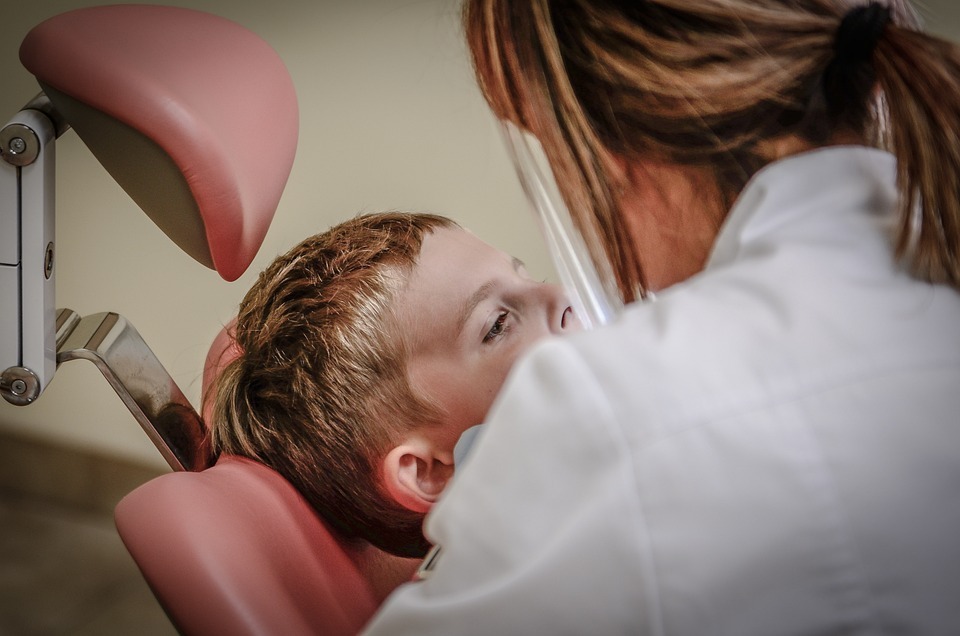Most children fear the dentist, especially when it is their first visit. Imagine seeing the equipment used to do dental checkups and procedures, not to mention the injections that usually come with anesthesia. Even adults are sometimes afraid and have to be put down to do some usual teeth extraction procedures. But how do we help children to get over this fear? Are there any tips and tricks that parents can do? This article will discuss why children have dental anxiety and some helpful tips to help them overcome it.
What is Dental Anxiety?
Dental anxiety is the tension or dread associated with dental visits. Fear of the dentist may be confined to particular procedures or instruments, such as a needle or a drill. Yet, for some children, even imagining visiting the dentist’s office might cause anxiety. To put it another way, dental anxiety is “fear related to seeking or receiving dental care.”
Anxiety is a multi-system response to a perceived environmental threat or risk in humans. It also represents the patient’s personal history and recollections, as well as the biological changes in the body. Anxiety in children can occur as early as the age of five. However, dental anxiety in children can progress to adults delaying critical dental treatment, and leading to major teeth and gum problems requiring costly operations to correct.
There are various potential causes for children’s anxiety or distress at the dentist. Some children are anxious about seeing the dentist, but worry can manifest itself in a variety of circumstances. For example, the dental phobia of a child may have been instilled in them by their parents or older siblings. The following additional causes can exacerbate dental anxiety:
- Recalling a terrifying encounter from the past.
- It is possible to see or feel steel dental instruments being used on a patient’s teeth.
- The atmosphere of the dental office, including the odor and design.
- Delaying required preventative medical examinations.
- Due to a lack of planning, the initial appointment with the dentist was unsuccessful.
You can help ease your child’s fear of the dentist by understanding its root causes. With this information, you can assist him in overcoming his fear of the dentist.
How to Help a Child Control Dental Anxiety?
Dental anxiety can be overcome by having a stronger mindset and a few therapies like other types of anxiety. Don’t worry; these therapy doesn’t have to be expensive, as you can do this by simply visiting a dental facility and making sure that your child is at ease during these sessions. Prepare your youngster for their next dentist visit by explaining the procedure to them. Even if it’s only a checkup, you should have the conversation before any major treatment. You also need to make sure that you answer their questions honestly. Sometimes, their fears come from the fear of not knowing what will happen, also called the fear of the unknown. If they have enough information about what will happen, your child may be able to calm down and proceed with the dental treatment.
In addition, providing a few rewards can also help keep your child calmer. Adults and children commonly use positive reinforcement. For example, you can promise to take them to an ice cream parlor after the session or buy toys. Of course, this depends entirely on your child’s interest. You can also use these methods and techniques:
- Never scare a child with dental work to persuade them to wash their teeth.
- Bring a favorite toy or comfort object with you to the dentist.
- Finding books or toys that revolve around trips to the dentist.
Of course, the best advice is to take them to a professional pediatric dentist who is more experienced in handling children with dental anxiety.
If you are looking for a pediatric dentist in Arlington, VA, look no further than Junior Smiles of Stafford. They are highly trained to ease children’s dental anxiety by giving them the best dental care. You can be sure that they can help your child overcome the fear they have of the dentist.
Conclusion
You should begin taking your child to the dentist regularly as soon as possible. It is beneficial to illustrate and underline the significance of proper oral hygiene practices, such as scheduling and maintaining frequent dental examinations. Your child should understand that the dentist and hygienist care about their dental health and are on their side. If going to the dentist is a regular part of your child’s life and early experiences, you can reduce his risk of developing dental fear

